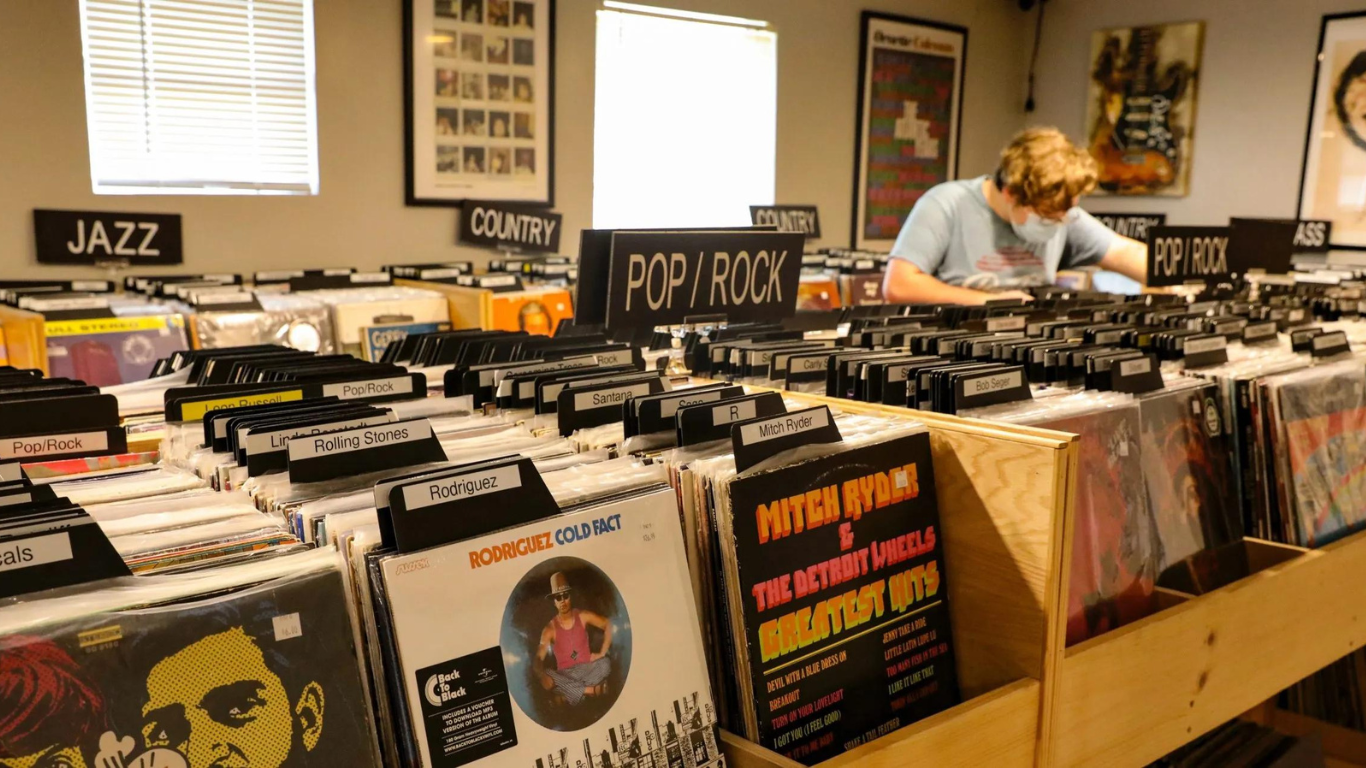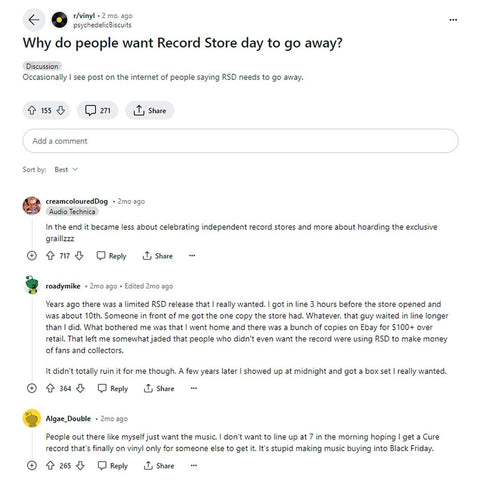Record Store Day: A Victim Of Its Own Success?
·

·
Since its inception in 2008, Record Store Day has aimed to honor independently owned record stores.
In the face of rising digital music sales and online giants, it emerged as a timely reminder of the existence of these physical music havens.
Inspired by the triumph of Free Comic Book Day, Chris Brown of Bull Moose Music and Eric Levin of Criminal Records envisioned a national event to bolster independent stores across North America.

Beyond just sales, the global vinyl resurgence is also greatly attributed to the day’s mission of sparking interest in local record shops.
However, the paradoxical nature of its success has led to significant unintended consequences within the independent music sector.
As early as 2014, Kudos, a London-based independent music distribution company specializing in physical and digital releases from numerous small labels, highlighted the impact of RSD on their operations, lamenting a slowdown in their release schedule due to pressing plants prioritizing large-scale reissues over smaller label releases.
Despite their past support for RSD, they expressed concern over its increasing domination by major labels and larger indies, which marginalized smaller labels advocating for vinyl sales throughout the year.
Numerous labels have eagerly embraced RSD as an opportunity to boost sales during typically slow periods, often without considering the genuine demand for certain releases. This has led to a flood of reissues and limited edition pressings, overshadowing the original ethos of Record Store Day.

In the face of rising digital music sales and online giants, it emerged as a timely reminder of the existence of these physical music havens.
Inspired by the triumph of Free Comic Book Day, Chris Brown of Bull Moose Music and Eric Levin of Criminal Records envisioned a national event to bolster independent stores across North America.

Beyond just sales, the global vinyl resurgence is also greatly attributed to the day’s mission of sparking interest in local record shops.
However, the paradoxical nature of its success has led to significant unintended consequences within the independent music sector.
As early as 2014, Kudos, a London-based independent music distribution company specializing in physical and digital releases from numerous small labels, highlighted the impact of RSD on their operations, lamenting a slowdown in their release schedule due to pressing plants prioritizing large-scale reissues over smaller label releases.
Despite their past support for RSD, they expressed concern over its increasing domination by major labels and larger indies, which marginalized smaller labels advocating for vinyl sales throughout the year.
Numerous labels have eagerly embraced RSD as an opportunity to boost sales during typically slow periods, often without considering the genuine demand for certain releases. This has led to a flood of reissues and limited edition pressings, overshadowing the original ethos of Record Store Day.

The proliferation of such releases has not only delayed the launch of new music by emerging artists, but also created logistical challenges for record stores, struggling with limited shelf space and a no-returns policy for Record Store Day stock.
Further, the event’s emphasis on limited editions has attracted scalpers, who exploit the demand by queuing early to purchase coveted releases for resale at inflated prices. Typically selling for 5x of its retail price.
Despite efforts by record stores to limit the number of Record Store Day releases per customer, scalping remains a persistent issue, undermining the event’s purpose.
Related Reading:
The Story Behind Apple's Iconic Start-Up Sound
How The 'Swag' Era Redefined Fashion And Culture






Comments